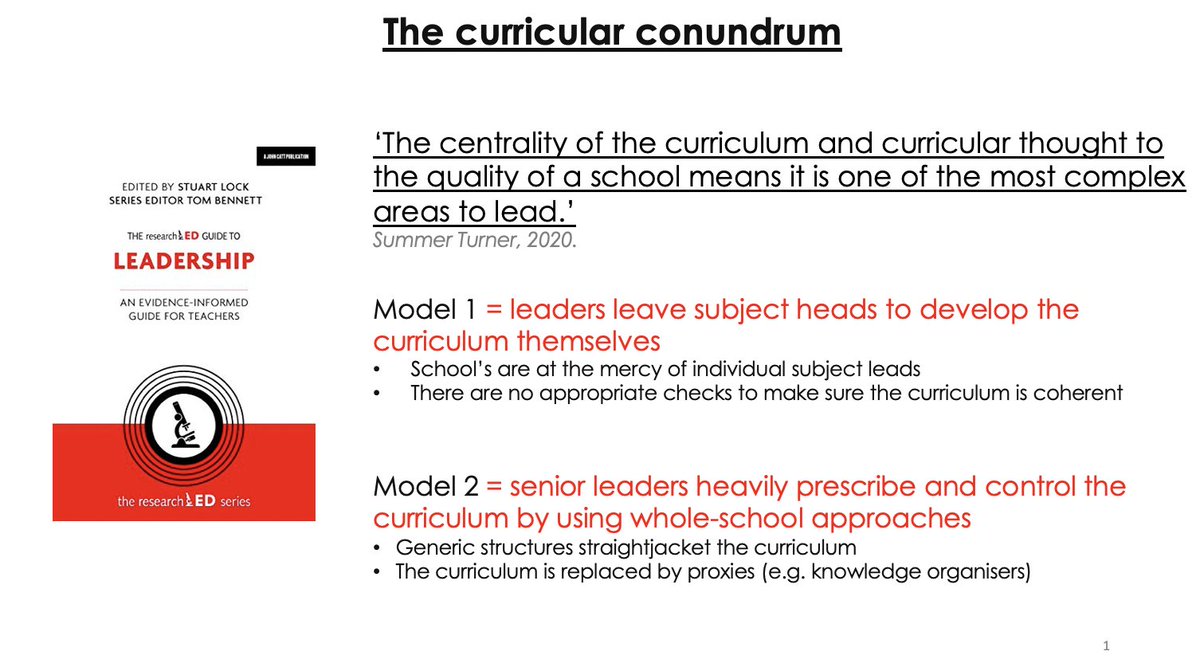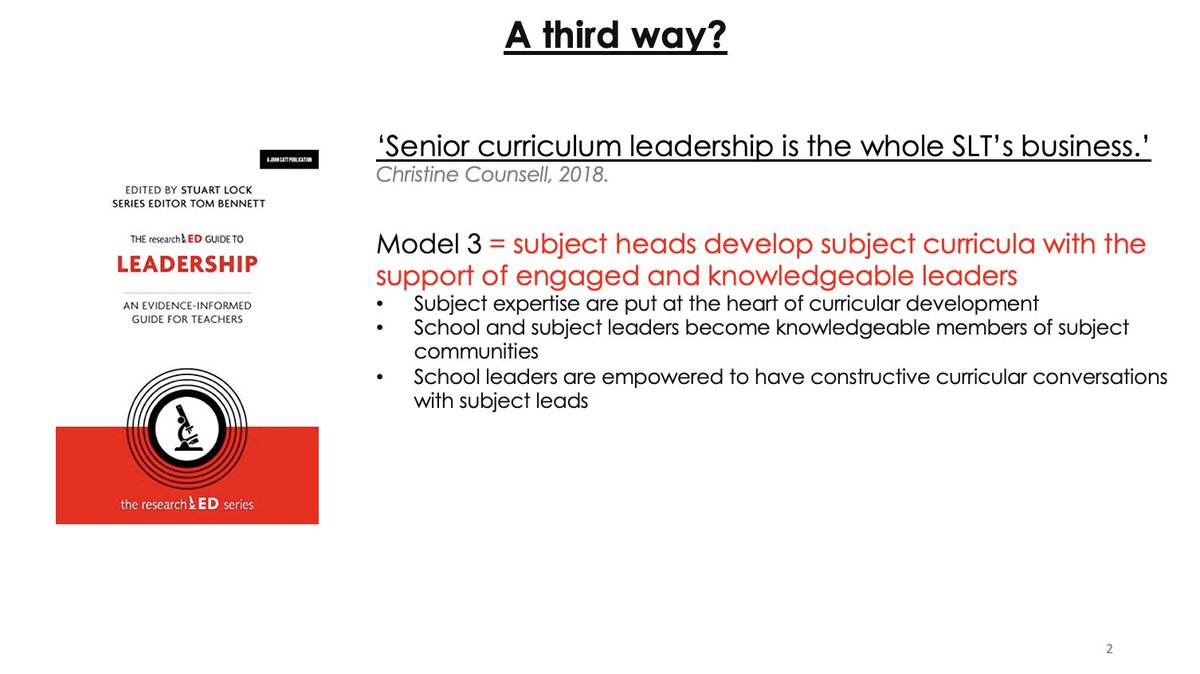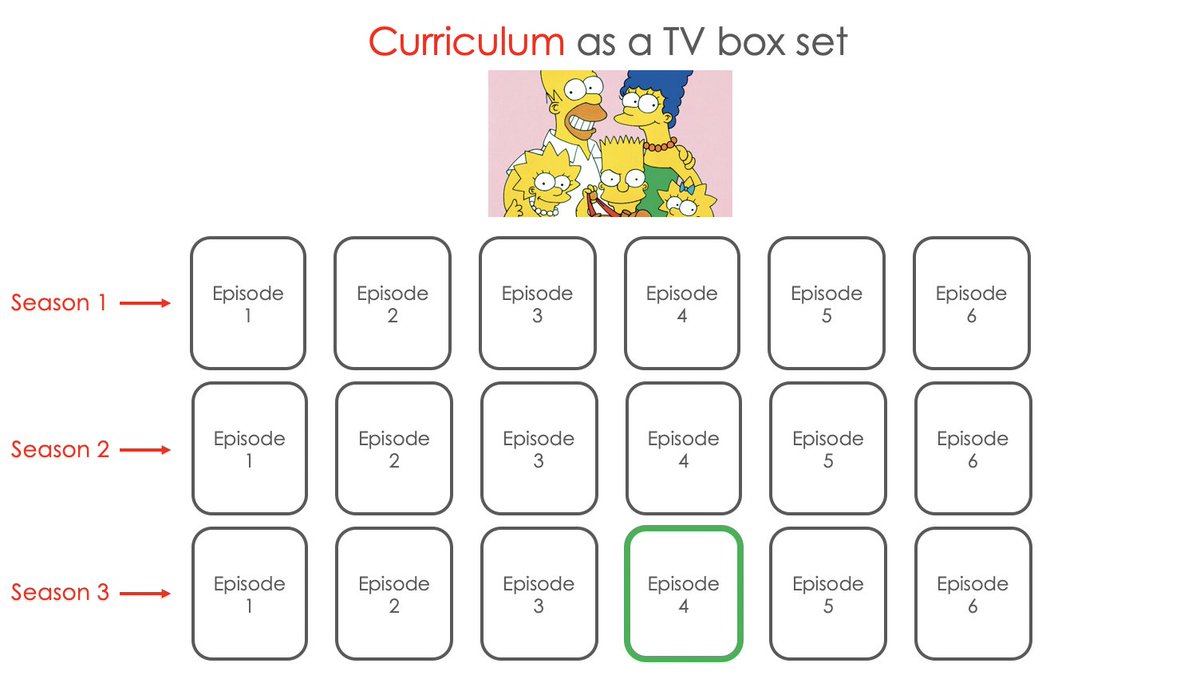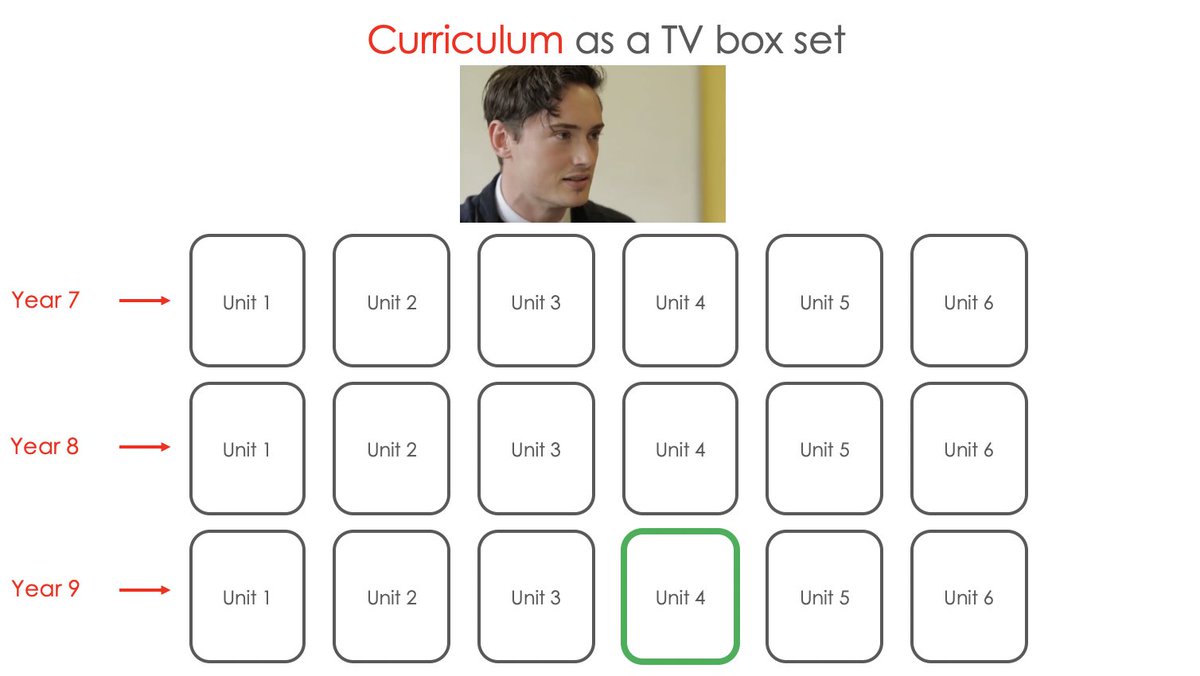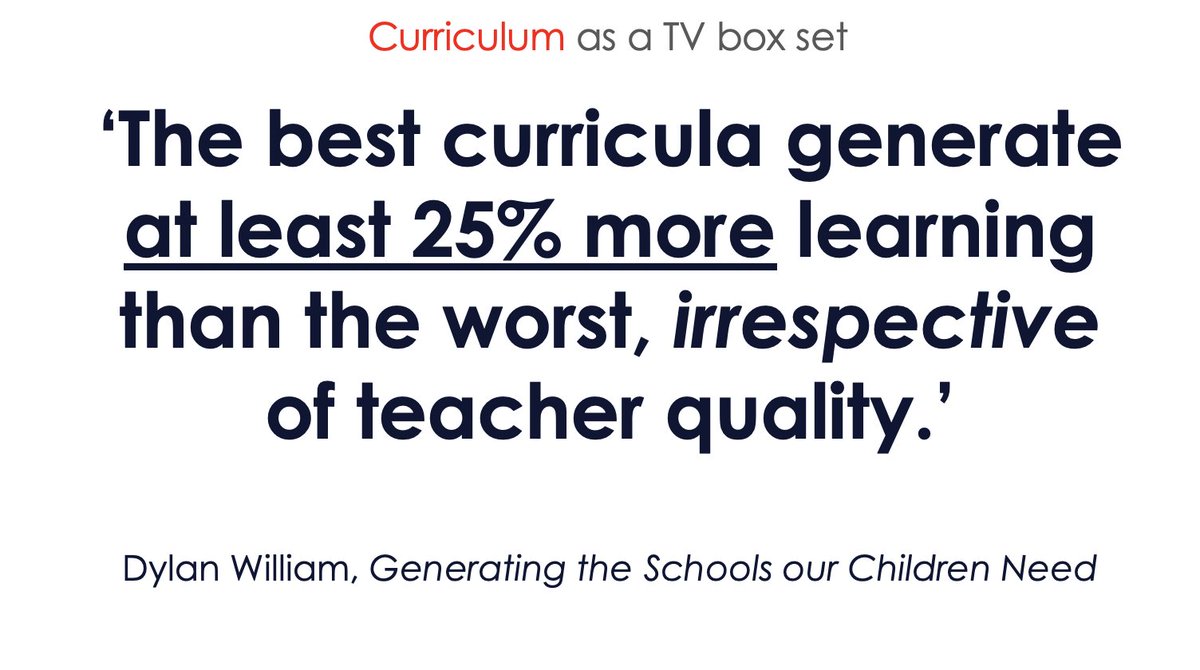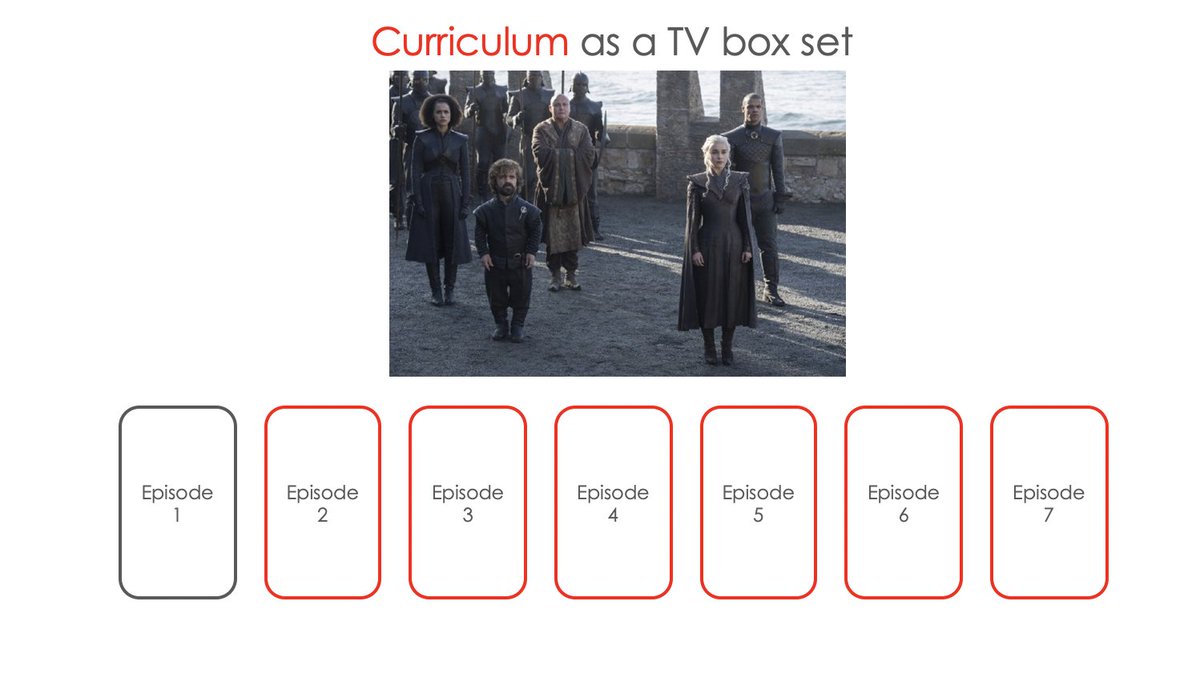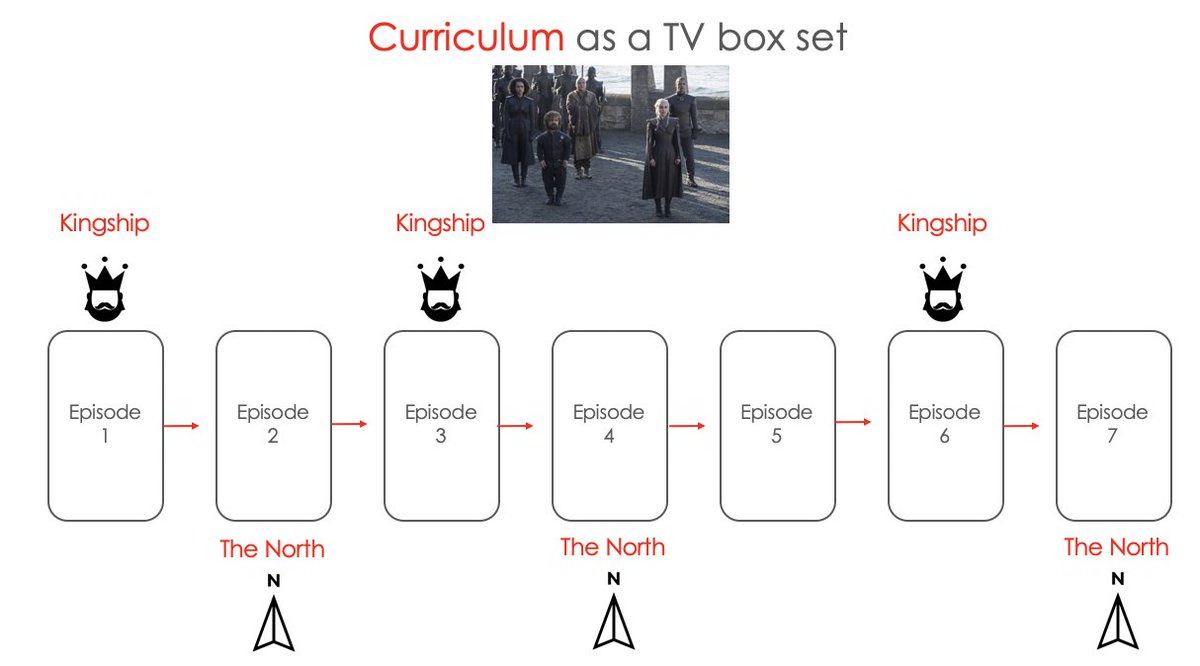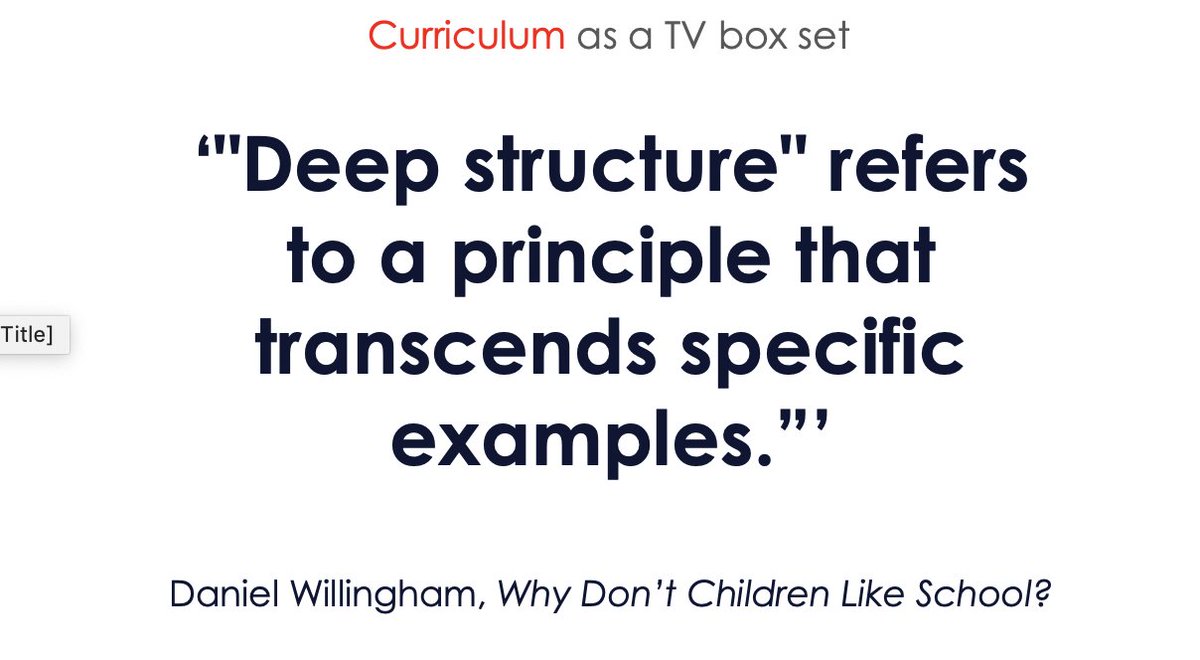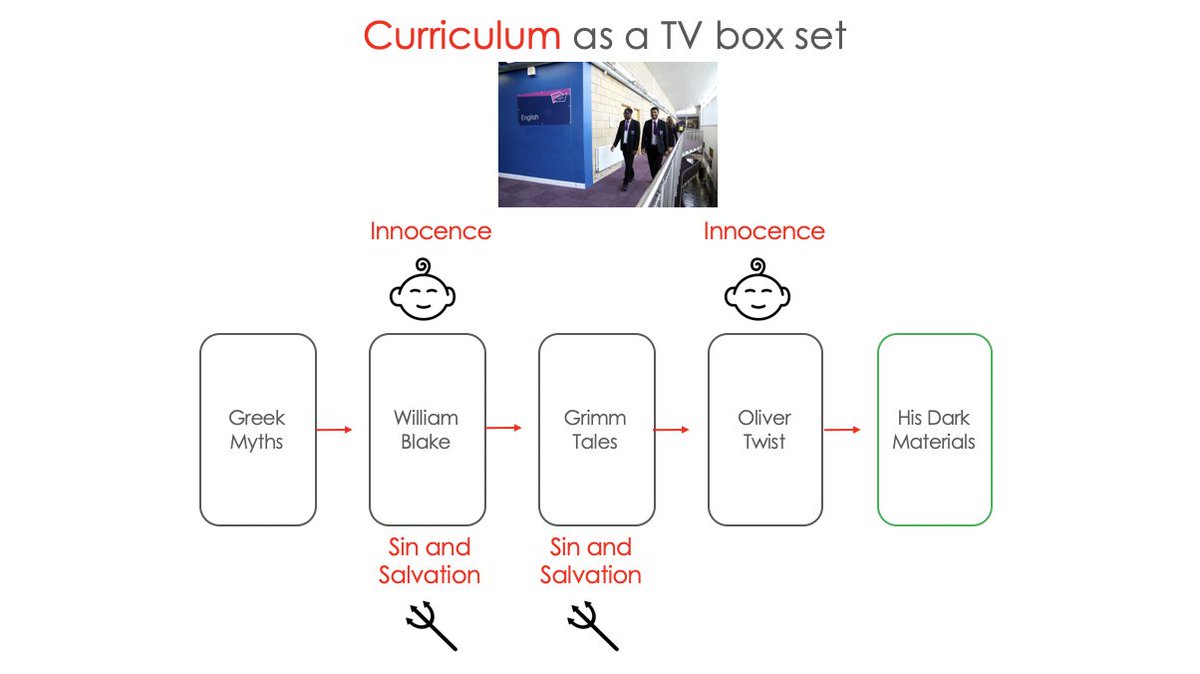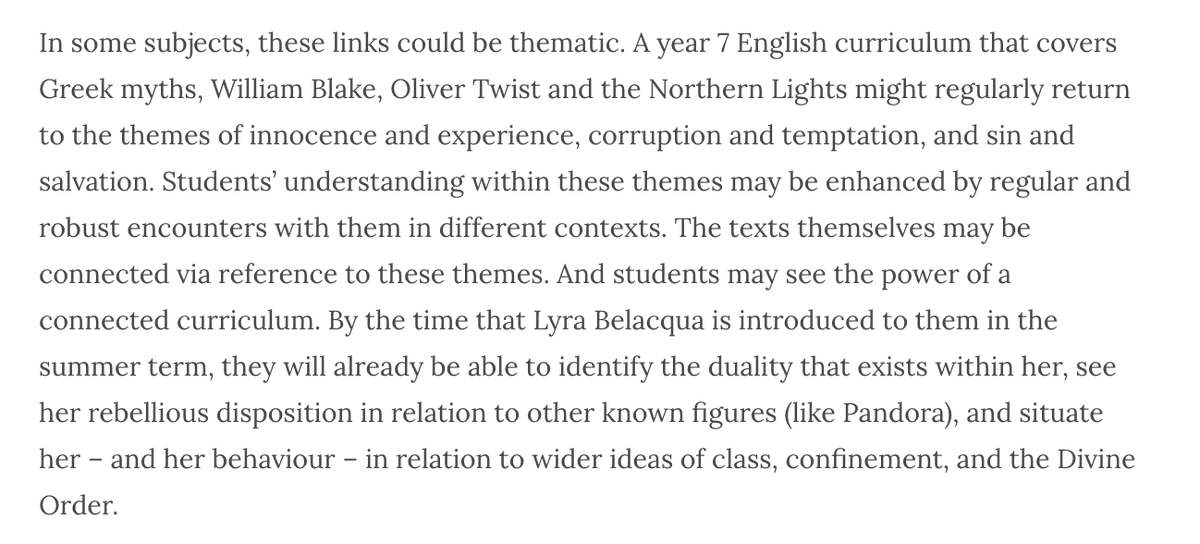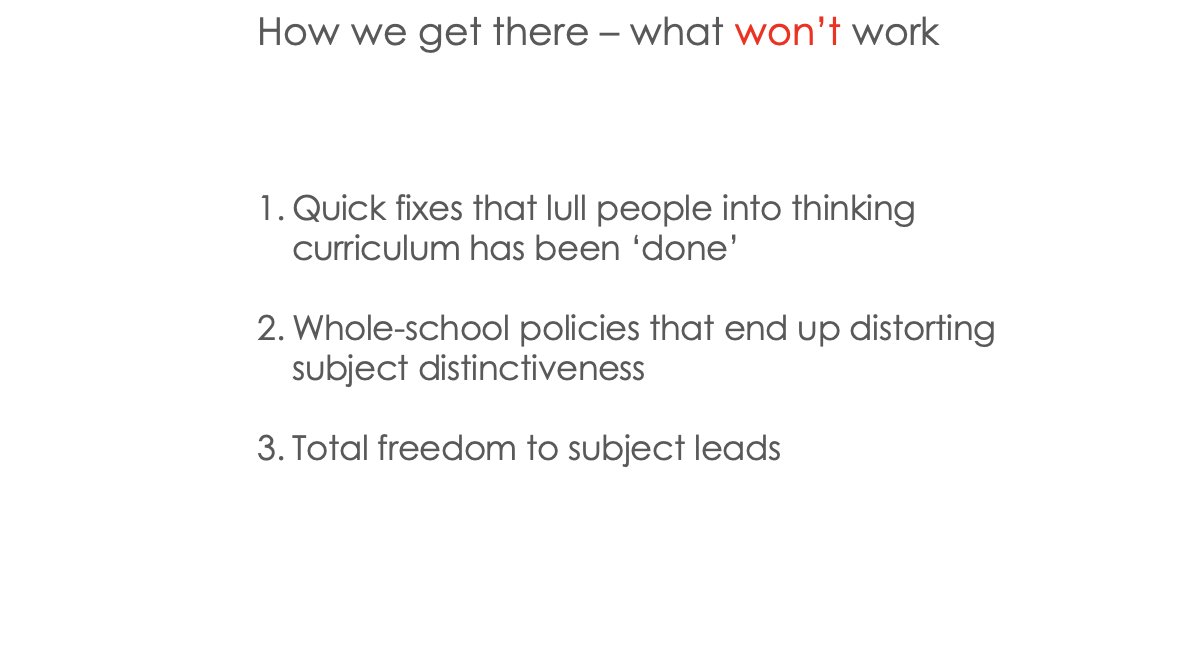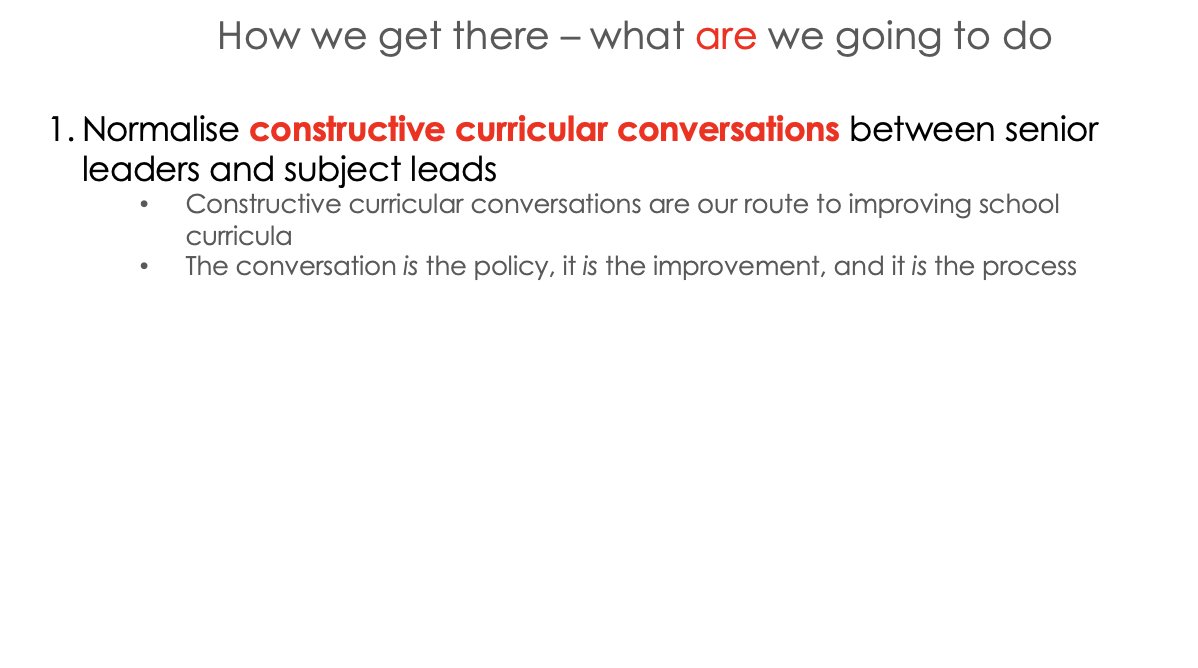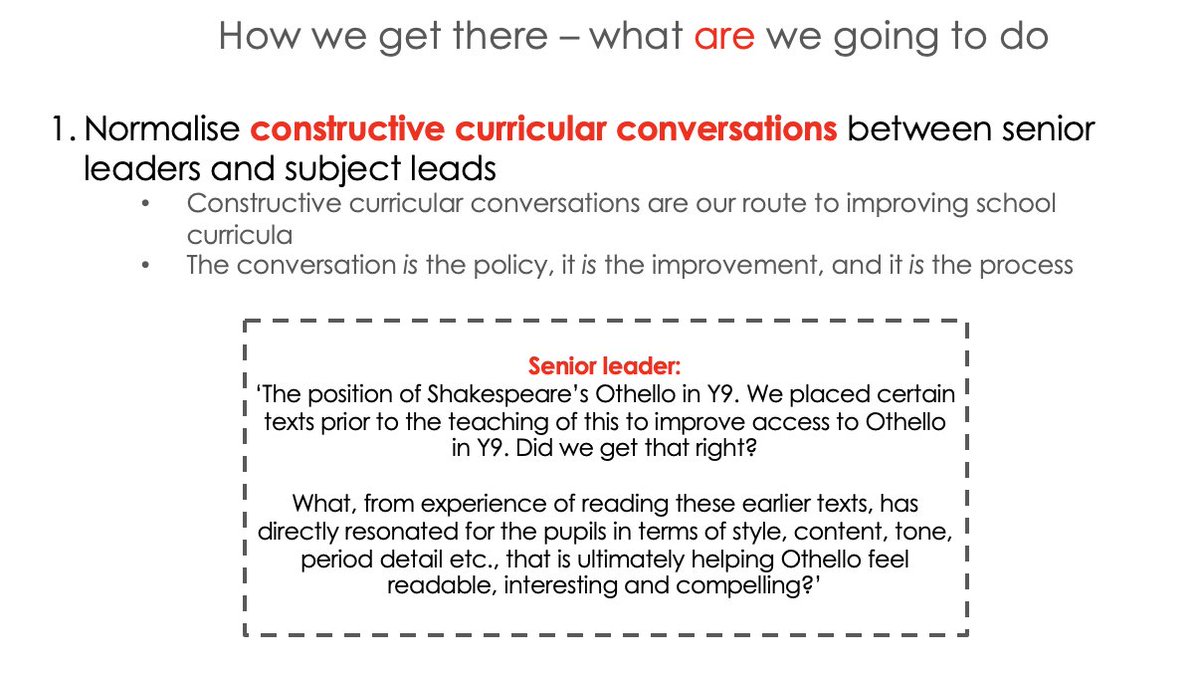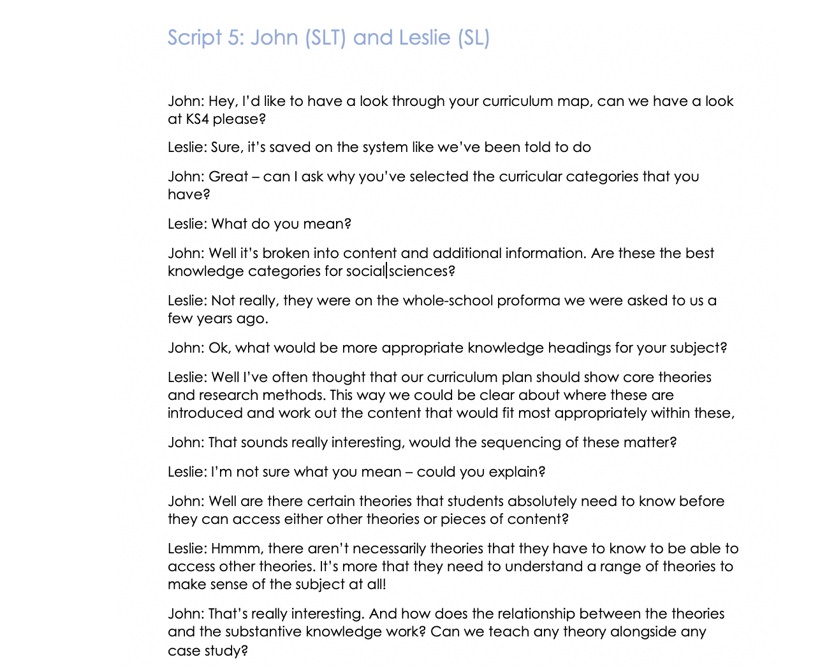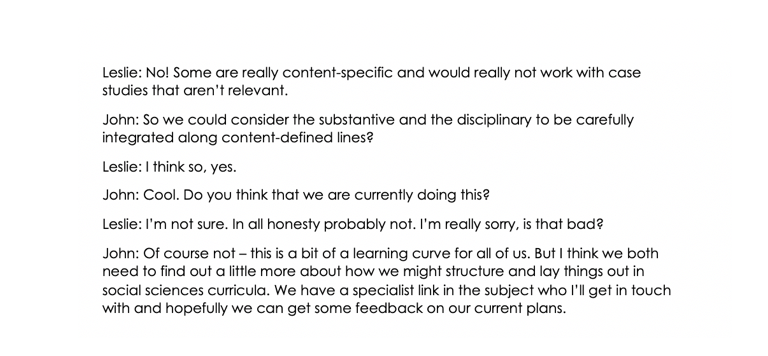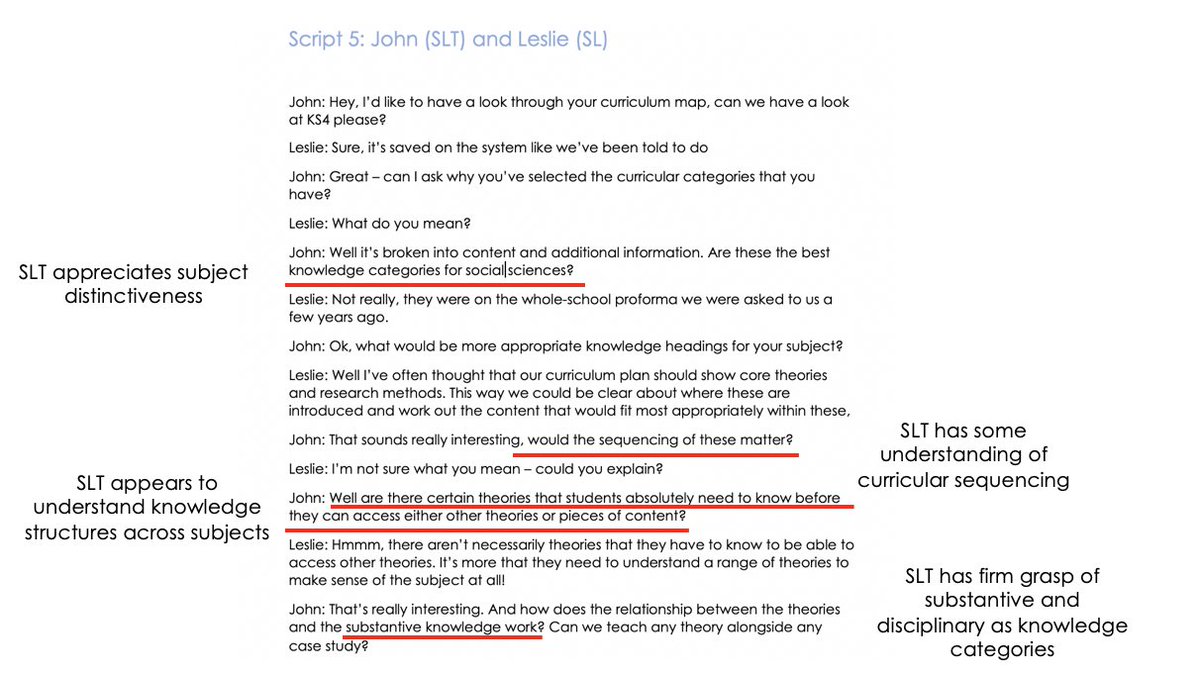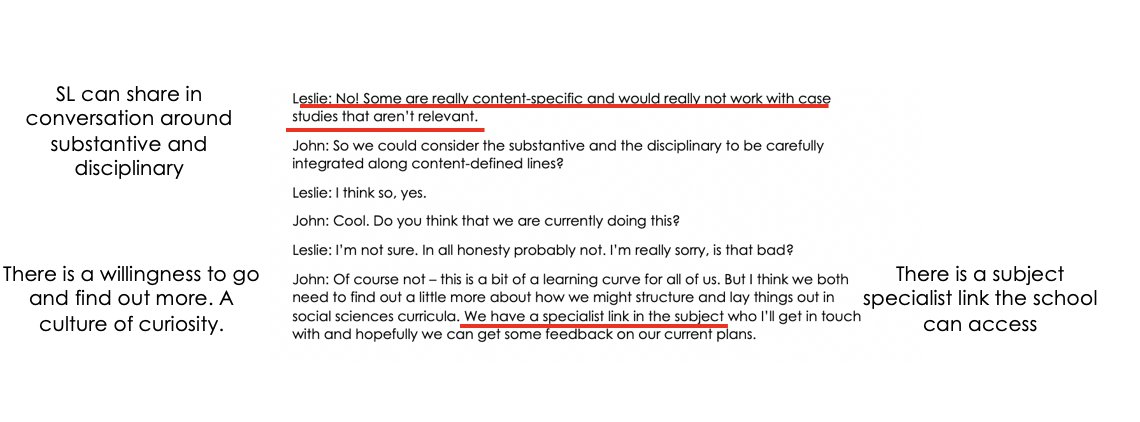LONG THREAD: I presented the new curriculum policy I& #39;ve been working on to SLT this week and thought it worth sharing on here. I was interested in the two models that @ragazza_inglese outlined in her piece in the ResearchEd curriculum book. Both felt painfully familiar (1)
I was interested in the idea of a & #39;third way.& #39; A model which saw subject leads develop school curricula with the support of engaged and knowledgeable leaders. A model that would put subject expertise at the heart of what we do (2)
An important starting point was to establish a clear direction. This is tricky given what we don& #39;t want to do is set up proxies and boxes to tick. I turned to the helpful box set analogy by @Mr_AlmondED to convey what a well-sequenced and coherent curriculum might look like (3)
There are 2 types of TV box set. The first is the Simpsons. Each episode stands alone and is enjoyable in its own right. It& #39;s also very convenient. We can pick up any episode and enjoy it at any time. To watch season 3 episode 4 I don& #39;t need to have watched any previous (4)
This Simpsons is great TV but a terrible curriculum. Honesty it was reminiscent of the history curriculum I planned years ago. Looking back, I& #39;m confident a Y7 could have been dropped in unit 4 of Y9 and access the unit in exactly the same way as the Y9s. This is a problem (5)
And it& #39;s a problem because for all the Rosenshine in the world, without a good curriculum the children in my class were limited. They were capped from the moment they stepped into my classroom. Dylan William says it better than I can (6)
The issue is even more pressing given the nature of our context. Children arrive in our school at an immense disadvantage. They deserve the right to an education that is committed to academic excellence. This is a curricular issue above all else (7)
Thankfully there is another TV box set that can help us. To try and watch episodes 2-7 in Game of Thrones without having first watched episode 1 would be difficult and confusing. It is different to the Simpsons in that it builds our knowledge over time (8)
Like any great narrative, themes, people, places, concepts, sub-plots and big ideas reoccur and help thread the story together. The more we watch, the more our understanding deepens and the more our recall of plot lines and intrigue becomes automatic (9)
This is because our knowledge is deepening. We move beyond surface-level encounters with new knowledge and return to big ideas time and again in varying contexts and spaces (10)
If we now think about this in a curricular sense we start to see something exciting. Our Y7 English curriculum is the best example of a & #39;GoT& #39; curriculum. The units that have come in terms 1 and 2 fundamentally alter the way they approach the text in the Summer Term (11)
I wrote about this in a recent blog post on sequencing and coherence. The knowledge that has come before *changes* the way students see the knowledge later in the year. This is different to the Simpsons history curriculum I planned all those years ago (12)
So how do we make our school curricula more Game of Thrones and less Simpsons? Well I& #39;m confident in what won& #39;t work. We won& #39;t achieve this via quick fixes and we won& #39;t achieve this via whole-school policies that mutilate subjects. It will require a broader culture shift (13)
I was lucky enough to have @Ruth_Ashbee look through my plans and a lot of what comes next I owe to her - so thank you, Ruth. (14)
I think the answer is a deceptively simple one. And possibly one that is terrifying to senior leaders looking for immediate results. I think that we need to start normalising constructive curricular conversations. (15)
I was initially struck by this example from @Counsell_C. A remarkably simple dialogue that changes the way a subject lead thinks about the ordering of material. We haven& #39;t had many conversations like this in my school before and they certainly weren& #39;t regular (16)
I gave senior leaders a more detailed set of scripts that were models of what constructive curricular conversations might look like. I asked them to discuss what was strong in these conversations, how staff were developed, what the follow ups were (17)
We all agreed that regular discussions like the ones outlined above would be hugely beneficial. But here is the crux. I think there is a great deal of work that has happened *before* those conversations can even take place (18)
If we were to interrogate the script in a little more detail we see that actually the senior leader understands sequencing, coherence, knowledge structures, substantive and disciplinary knowledge... (19)
And the subject lead appears to have a strong baseline understanding. Above all, both are committed to finding out more and reaching out to a specialist link within the subject community (20)
So there is a process that needs to happen before we can say that we will have regular constructive curricular discussions. Everyone must be brought up to a baseline. For SLT, this is about understanding structures of knowledge, sharing a language of curriculum... (21)
And themselves making time to prioritise curricular development and engage in subject communities. I& #39;ll be leading more sessions on each of these areas over the coming weeks. (22)
For subject leads it is slightly different. I& #39;m not sure they do need to understanding the intricacies of knowledge structures if they
A - understand that they are working towards a GoT (not Simpsons) style curriculum
and B - are involved in their subject community (23)
A - understand that they are working towards a GoT (not Simpsons) style curriculum
and B - are involved in their subject community (23)
This second part is so important. If you can establish a culture where knowledge, subject communities, and reading are prioritised, then you go a long way to addressing the issue of poor school curricula (24)
I& #39;ll be running some training for subject leads after half term where we will run through some of the above and begin to establish specialist links within subjects. People who we can ask for help when we are stuck (much like I did with @Ruth_Ashbee at a whole-school level) (25)
Therefore the work before Summer is about bringing everyone up to a baseline. We are not rushing this because it is about a culture shift. One that will see us well-placed to normalise constructive curricular discussions from September onwards (26)

 Read on Twitter
Read on Twitter